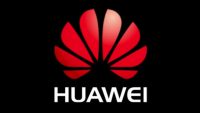The U.S. government banned Huawei Technologies to target the company’s 5G telecom equipment, but it’s also had the unintended consequence of crippling the Chinese company’s smartphone business. Huawei is the manufacturer of the world’s No. 2 smartphone, and its business will likely be affected without access to components and software. The ban is also expected to impact other companies, including U.S.-based Broadcom, which says it will suffer a $2 billion hit from not being able to sell to Huawei. Meanwhile, Huawei has made it known that it would invest heavily in countries that welcome its products.
The Wall Street Journal reports that, although the U.S. has judged Huawei to be a national security threat, most Americans have never used a Huawei phone, which brought in $50 billion in revenue last year.

In the wake of the ban, “Huawei canceled the launch of a new laptop and paused production in its personal-computer business,” the latter of which depends on Intel chips and Microsoft Windows operating systems. Huawei also stated that its phones “would no longer be sold pre-installed with Facebook apps, including Instagram and WhatsApp.”
The company also lost the ability to license Google’s Android operating system for its new phones. Huawei revealed it has stockpiled parts and is working on its own operating system, trademarked Hongmeng, to replace Android. With the looming lack of Android, JPMorgan analysts have “cut their forecast for Huawei’s overseas smartphone shipments by 30 percent to 90 million units for the year.”
Huawei is fighting back by offering discounts and/or free smartwatches in the Middle East and Russia. Prior to the ban, Huawei was on the rise. Although, in Q1 this year, the rest of the smartphone industry slumped 6.7 percent from a year earlier, said IDC, “Huawei phone shipments soared 50 percent over the same period.”
Elsewhere, WSJ states that Broadcom is also feeling the effects of the Huawei ban, “becoming one of the first big chip makers to quantify the financial impact of the Trump administration’s escalating trade dispute.” Few others have “reported financial results since the Commerce Department” put the company on a list that bars companies from supplying U.S. technology to Huawei without a license.
If Broadcom is any indicator, however, “those effects could be severe.” In its previous fiscal year, Broadcom “made around $900 million of revenue from Huawei,” representing about 4.3 percent of its total revenue. Intel and Qualcomm are other big companies in the semiconductor industry that could be impacted, as analysts reported that, “Huawei is one of the U.S. chip industry’s most lucrative customers.”
Bloomberg reports that Huawei global vice president of marketing Andrew Williamson said that, “Huawei will invest heavily in those countries where we are welcome.” “Restricting competition in 5G infrastructure will have huge costs,” he added. “Governments and companies around the world will have to address those costs against the supposed risks of national security.”
Williamson added that Huawei believes, “there’s a need for global cybersecurity standards to be set.” In Mexico, Huawei is “providing the technology for the country’s wholesale wireless network, Red Compartida … [and] working with every major carrier.” In Europe, said Canalys U.K.-based analyst Ben Stanton, demand for Huawei gear has “dropped off a cliff.”
Related:
Huawei Has 56,492 Patents and It’s Not Afraid to Use Them, Bloomberg, 6/14/19

No Comments Yet
You can be the first to comment!
Sorry, comments for this entry are closed at this time.